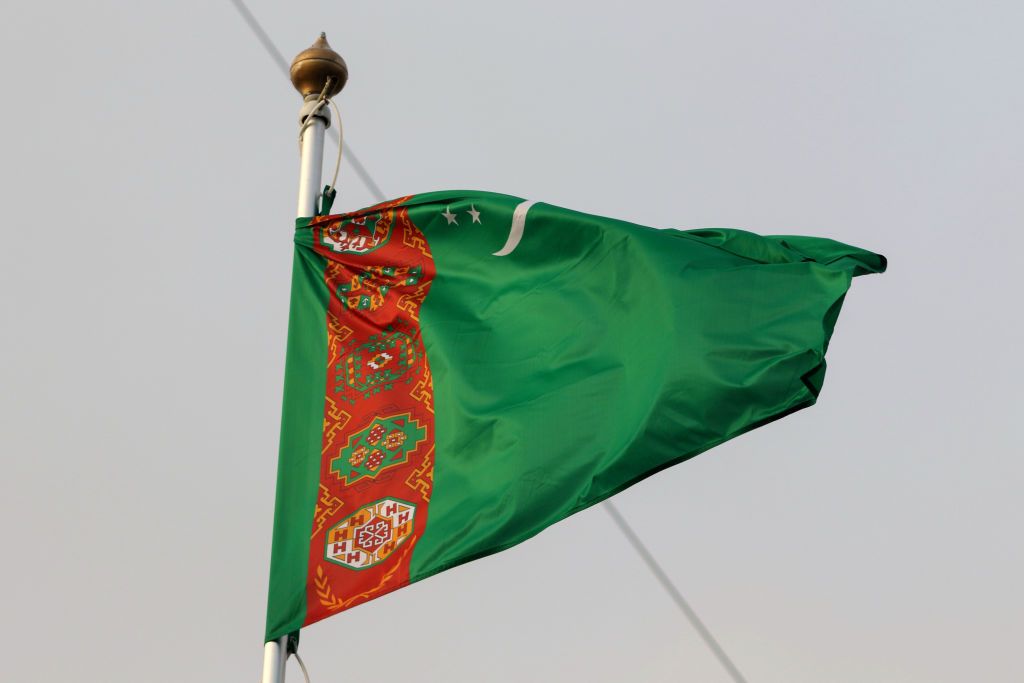Authorities in Turkmenistan are taking measures to repatriate Turkmen students studying in Russia following a terrorist attack at Moscow’s Crocus City Hall. The attack, which killed 139 people, was carried out by four men from Tajikistan, with three others accused of being accomplices. Turkmenistan is concerned about potential retaliation and has ordered the return of students as well as warning officials and students about religious radicalism. Kyrgyzstan has also advised its citizens not to travel to Russia in the aftermath of the attack. Despite the perpetrators being Tajik and the Islamic State taking responsibility, the Kremlin has tried to blame Ukraine, with Russian President Putin claiming the suspects planned to flee there. However, Belarusian dictator Lukashenko contradicted this theory, stating that the suspects initially tried to flee to Belarus before changing their plans and heading towards the Ukrainian-Russian border.
Family members of the Moscow attack suspects from Tajikistan have been interrogated by Russian authorities in Tajikistan and interviewed by the media. Many of the family members expressed disbelief that the men would have been motivated by extremist Islamic beliefs. The Tajik service of Radio Free Europe/Radio Liberty published a series of interviews with the suspects’ family members, shedding light on their reactions to the accusations. This highlights the complexity of the situation and raises questions about the true motives behind the attack. It also demonstrates the impact that such events have on families and their perceptions of their loved ones.
The repatriation of Turkmen students studying in Russia reflects the concerns and precautions being taken by Central Asian countries in light of the terrorist attack in Moscow. While the attack was carried out by individuals from Tajikistan, the repercussions are being felt across the region, with authorities in Turkmenistan and Kyrgyzstan taking proactive measures to protect their citizens. The blame game between Russia, Ukraine, and Belarus further complicates the situation, with conflicting narratives emerging about the suspects’ intentions and movements after the attack. This geopolitical context adds another layer of complexity to an already tragic event, demonstrating the ripple effects of such acts of terrorism.
The warning about religious radicalism issued by the Turkmen government to its officials and students underscores the broader concern about extremism and radicalization in the region. Central Asian countries have been grappling with the threat of terrorism and the influence of extremist ideologies, prompting them to take preemptive measures to prevent radicalization and protect their citizens. The involvement of the Islamic State in claiming responsibility for the Moscow attack underscores the global reach of extremist groups and the challenges they pose to regional security and stability. By addressing these issues proactively, Turkmenistan and other Central Asian states are taking steps to safeguard their populations and prevent further violence.
The interviews with the suspects’ family members provide a glimpse into the human side of the tragedy, highlighting the impact on the families of those involved in acts of terror. The disbelief expressed by the family members raises questions about the radicalization process and the factors that may have influenced their loved ones’ involvement in such violence. This human element underscores the complexity of dealing with terrorism and the importance of understanding the motivations behind these acts in order to prevent future tragedies. By shedding light on the personal experiences and emotions of those affected, the interviews offer a perspective that is often overlooked in discussions about terrorism and extremism.
Overall, the aftermath of the Moscow attack highlights the interconnectedness of regional security issues and the challenges faced by Central Asian countries in addressing the threat of terrorism. The responses of Turkmenistan, Kyrgyzstan, and other states in the region reflect a shared concern about extremism and the need for coordinated efforts to prevent radicalization and violence. The conflicting narratives and geopolitical implications of the attack demonstrate the broader implications of terrorism and the complexities of dealing with transnational threats. By focusing on prevention, warning about radicalization, and addressing the human impact of terrorism, Central Asian countries are working to enhance their security and protect their populations from the scourge of extremism.


